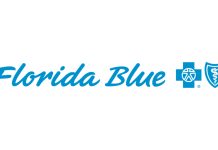
School for Advanced Studies senior David Pena has won a full scholarship to the California Institute of Technology (Cal Tech) from the QuestBridge program.
The QuestBridge program matches low income high school students with one of 40 colleges and pays for their education. The value of the scholarship is $200,000 because it not only covers tuition but room and board.
Pena said he is going to be an engineering major at Cal Tech, but he is not sure which branch of engineering he will take — his list includes nuclear engineering, electrical or chemical.
“[Engineering] is just a basic interest that has always been there for me,” he said. “I’m good at chemistry but I like the aspect of using the chemistry in another field that I’ve learned.”
Pena says it wasn’t any more difficult filling out the QuestBridge scholarship form than any other college application.
“It’s a common application,” he says. “The finalists are based on need.”
The application is sent to the top eight institutions the student ranked from the list of participating schools.
“You present all your achievements and accomplishment,” Pena said. “The full-ride scholarships are for those who wouldn’t be able to afford it otherwise.”
When Pena graduates from the School for Advanced Studies, he will have earned not only his high school degree but his AA degree from Miami Dade College as well. He transferred to SAS — which only has juniors and seniors — from Terra Environmental Research Institute. If he had stayed, he would have been in Terra’s first graduating class. But he transferred because of the opportunities and the dual enrollment program.
Like all high school students do, Pena did his share of volunteer work. He has done park cleanups at Matheson Hammock and Indian Hammocks parks and cancer walks. He also has volunteered at a day care center.
“I wanted to do something that wasn’t common,” he said. “I helped take care of the kids and helped the administrator whenever she was coordinating field trips because it was summer. I mainly helped with a pre-K class.”
Pena said the experience helped him learn patience and tolerance and not giving up even though it’s tough.
He also interned at the University of Miami doing Computational Chemistry for two summers through the American Chemical Society SEED I and SEED II programs.
“It’s basically modeling, what happened in lab settings,” Pena said. “We worked with molecular dynamics. We were interested in the reactions as much as the movements and positioning of the molecule. We were able to view molecules in a way you wouldn’t be able to do if you’re looking through a microscope.”
His chemistry teacher recommended him for the program that is working to develop cures for Alzheimer’s and a disease that causes high levels of insulin in the blood.
“It was something completely different from what I had done since learning organic chemistry and advanced computer topics,” Pena said. “It was hands-on in the sense that you were using the computer to create the models. It was not the usual chemistry where you were mixing the chemicals and waiting for something to happen.”
Because of his experience, he wrote a paper that he presented at the Southern Regional Meeting of the American Chemical Society.
His love of science and engineering led him to start the Robotics Club at SAS. The club’s first competition was scheduled for late March.
For fun, Pena was in the Salsa Club, where he learned how to dance.






